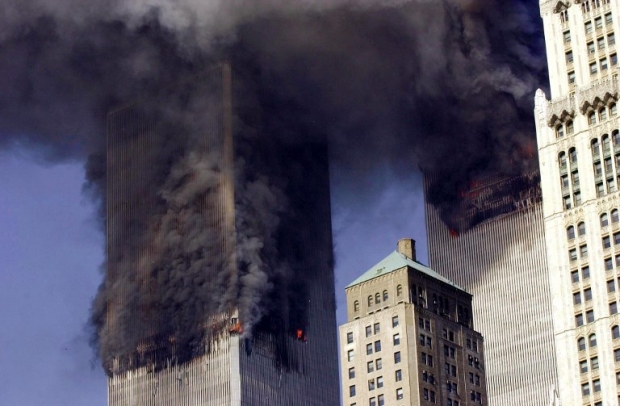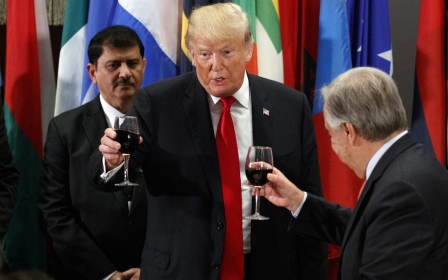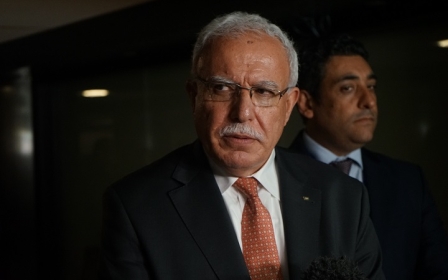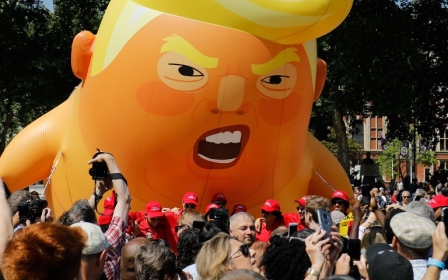Trump at the UN: A 'revolutionary' ideology is born
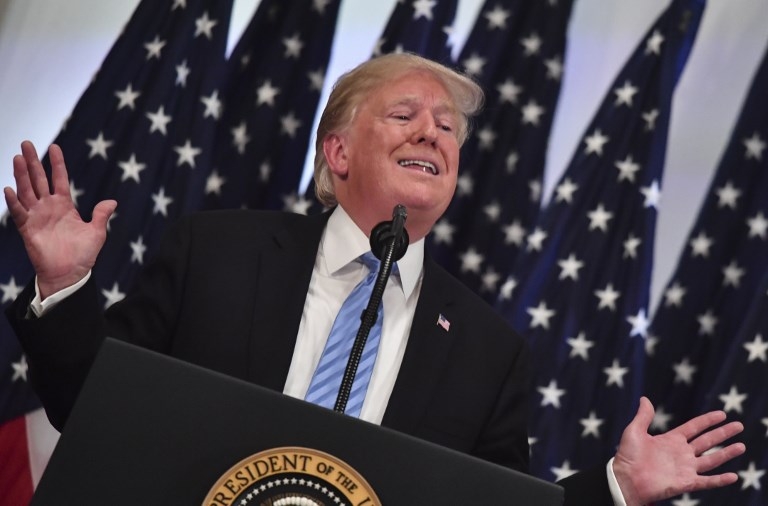
The 73rd session of the United Nations General Assembly (UN) witnessed a “revolutionary” speech this week.
In the past, many have used the UN platform to criticise the UN, global inequalities, wars, poverty and embargoes - but there has never been a categorical attack on globalisation.
In 2005, late Venezuelan leader Hugo Chavez used his UN speech to warn the global community about “frightening neoliberal globalisation”, but added that “there is also the reality of an interconnected world that we have to face not as a problem, but as a challenge”.
This time, an arriviste revolutionary, US President Donald Trump, went even further, claiming: “We reject the ideology of globalism and accept the ideology of patriotism.”
Empty signifier
This strange sentence was pronounced not only by the most unexpected figure, but also in the wrong building, city and country. In the UN building, home to all the world’s ideologies, was this “ideology” being rejected; in New York City, home to 800 languages, was “globalism” trashed; and in the US, a global melting pot, was “patriotism” trumpeted. In that bizarre instant, the world was likely struggling to understand the empty signifier “we”.
Had this been a speech at the World Social Forum, or at any radical leftist gathering, nobody would likely have noticed. If we had a chance to travel back in time, to before Trump’s trips between ideologies, we could tell protesters at the 1999 anti-globalisation protests in Seattle: “Don’t worry - in less than two decades, Donald Trump will be president of the US, and he will defend your positions.”
The concepts of fair trade, independence, sovereignty, globalism and hegemony are thrown around without any concrete or tangible worldview
Protesters would likely accept the possibility of Trump becoming president out of respect for the science of probabilities, but they would reject, even hypothetically, that any US president -especially a businessman such as Trump - would attack the ideology of globalism and push anti-free-trade policies.
The unbelievable is happening. Trump has delivered the most “revolutionary” speech ever heard in the UN General Assembly, and many new contradictions have emerged. As the world watches multilateralism sliding into chaotic bilateralism, Trump has opened a new avenue of primitive unilateralism based on “principled realism”. If this is not an attempt to revive an international relations theory in its death throes, then we are about to enter very interesting times.
Mysterious and unfamiliar
The new developing era will come up against Trump’s floating signifier, “we”. It is quite obvious that his “we” is mysterious and unfamiliar, not only to the rest of the world, but also to the US as we know it.
During the George W Bush presidency, much of the world consumed all kinds of conspiracy theories about who “we” were. At the same time, the world defined and pointed at that American “we”: Neo-conservatives still living with a Cold War mentality. The influence of the Project for the New American Century and their hangers-on was gravely exaggerated.
The bloody attacks of 9/11 and the occupations of Afghanistan and Iraq created untestable conspiracy theories. If both camps were not happy, they were satisfied.
The important neo-con figures had been known to the world for years; they had a proven intellectual capacity, undeniable state experience and verifiable history. Although their fatally wrong answer to 9/11 triggered political fault lines in the Middle East and dismissed the role of the UN, this was merely seen as an abuse of global institutions, rather than an attack on their very existence.
The new American “we” is mostly unknown to the world. Its celebrity figure is Trump, surfing on a wave of global populism. It does not hesitate to borrow the anti-systemic movement’s concepts and even some socialist perceptions. The concepts of fair trade, independence, sovereignty, globalism and hegemony are thrown around without any concrete or tangible worldview.
Brazen rebellion
Amid a global political depression, Trump’s new revelations have added fuel to the fire. Now, the US stands at the epicentre of global political turbulence. The cost of his rejection of globalism and acceptance of supremacist nationalism may activate global economic fault lines. The most celebrated property of the current populism is its political myopia, and it is dangerously contagious.
Trump’s brazen rebellion will surely echo in many corners of the world. Distorted global trade, paralysed international institutions and depressed global politics will further erode the world order. The last thing the global political economy, already built on structural inequality, needs is another unilateral, ambitious adventure at the cost of the world’s most vulnerable.
A blunt US withdrawal from international institutions and global politics has huge potential to create a chaotic void. The world should not be seeking to understand parvenu revolutionary Trump’s new empty signifier, the American “we”; rather, it must focus on damage control, by managing the natural outcomes of the “America last” reality.
- Taha Ozhan is an academic and writer and holds a PhD in politics and international relations. He was chairman of the foreign affairs committee of the Turkish parliament and senior adviser to the prime minister. He frequently comments and writes for international media. His latest book is Turkey and the Crisis of Sykes-Picot Order (2015).
The views expressed in this article belong to the author and do not necessarily reflect the editorial policy of Middle East Eye.
Photo: US President Donald Trump speaks during a press conference on 26 September, 2018, on the sidelines of the United Nations General Assembly in New York (AFP)
Middle East Eye propose une couverture et une analyse indépendantes et incomparables du Moyen-Orient, de l’Afrique du Nord et d’autres régions du monde. Pour en savoir plus sur la reprise de ce contenu et les frais qui s’appliquent, veuillez remplir ce formulaire [en anglais]. Pour en savoir plus sur MEE, cliquez ici [en anglais].



